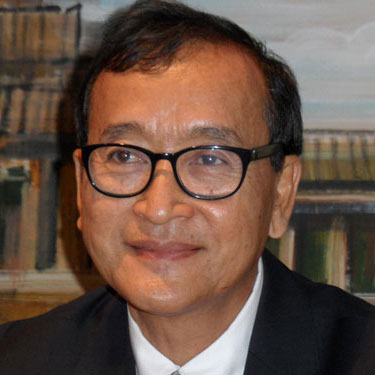The peace treaty signed in 1991 to end the war in Cambodia which had raged since the ousting of the Pol Pot regime in 1979 is an important reference for attempts to build peace in Ukraine today.
Cambodia in the 1980s was the centre of regional ambitions which in turn were fuelled by global rivalries. The war, started when Vietnam invaded in 1979, could only be ended by Cambodia’s adopting a status of neutrality enshrined in an international treaty, the Paris Accords of 1991, which allowed a return to peace.
During the 1980s, Cambodia was torn apart by a civil war in which “government forces” supported by Vietnam and the Soviet Union faced the “resistance” supported by China, the US and the six pro-Western countries of ASEAN at the time. The supporters of the “resistance” sought to prevent Cambodia from falling into the Soviet sphere of influence. This aim, which seemed difficult to achieve in the 1980s, became easier from 1989 with the first signs of the collapse of the Soviet Union, which was no longer able to supply its ally Vietnam with the means to continue the war in Cambodia.
An essential precondition for the peace accords of October 1991 was the ceasefire which had come into effect in Cambodia earlier that year in May. Then as now, a ceasefire is the first and urgent step towards a lasting solution.
Russia wants to remove Ukraine from the sphere of Western influence
In the current European context, Russia is seeking to remove Ukraine from the sphere of Western influence. Russian President Vladimir Putin says that Ukraine is not simply geographically adjacent to Russia, but also very close to it in historical and cultural terms, which at least gives Russia a right to monitor what is going on in Ukraine.
In an atmosphere which harks back to the Cold War, Moscow accuses Kyiv of threatening Russia’s security due to Ukraine’s growing “connivance” with the West in the light of possible and potential demands to join the European Union and NATO. These demands seem to be favourably viewed by the West.
Neutrality indispensable for Ukraine as for Cambodia in 1991
In this context of extreme regional tension in which each party has plausible arguments, the only way to achieve lasting peace in Ukraine seems to be the neutralisation of the country by international guarantee through an international treaty modelled on the Paris accords on Cambodia in 1991. These peace accords stipulate that Cambodia must proclaim and maintain its neutrality in all circumstances, with a clause on this neutrality included in its constitution, with a specific mention on the prohibition of allowing foreign military bases.
The international community has the responsibility for supervising this Cambodian neutrality at the same time as guaranteeing its independence, national sovereignty and territorial integrity. The agreements were signed by the five permanent members of the UN Security Council, (the US, the UK, France, the Soviet Union and China), all of Cambodia’s neighbours, all the regional powers (Japan, India, Australia) and other concerned countries.
In the case of Ukraine, a treaty to create a lasting peace must be signed by Ukraine itself, Russia, Belarus, Poland, Slovakia, Hungary, Romania, Moldavia, Bulgaria, Turkey, the US, Germany, France, maybe the European Union as a whole, China and other countries which are directly or indirectly concerned.
The Paris Accords of 1991
The Paris Peace Agreements on Cambodia of 1991 have three elements:
- The peace itself, with clauses on ceasefire, disarmament, demobilisation, the return of refugees and the withdrawal of foreign troops;
- Reconstruction and economic development thanks to massive aid from the international community;
- The installation of a “democratic regime of a liberal and pluralist type” with the organisation of “free and fair elections”.
The first two elements were applied in a relatively satisfactory way, which allowed the effective return of peace, the return of refugees and improvement in living conditions for the population after a long period of suffering. The application of the third and last element leaves something to be desired with the derailing of the democratic process and violations of human rights which continue to this day.
But overall, the Paris accords have proved crucial to achieve peace and preserve Cambodia as a nation thanks to active international solidarity. There are lessons to be drawn for other regional or international conflicts.
International Solution
Of course there are national and regional specificities. The geopolitical context differs from that of 1991, notably in that Putin may want to regain the old limits of the Soviet Union. Yet the treaty which ended the war in Cambodia can still inspire those who are thinking about the future of Ukraine at this tragic moment in its history. This treaty signed under the aegis of the United Nations responded to the principal preoccupations of all the parties to the conflict. It shows the basis of an international solution to the current conflict in Ukraine which otherwise risks being prolonged and dangerously extended.
As was the case for Cambodia of 30 years ago, Ukraine today finds itself drawn into a regional conflict involving all the world’s major powers. The Paris accords of 1991 are a possible model for those who want to give peace a chance.
The views and opinions expressed in this article are those of the author.

Sam Rainsy, Cambodia’s finance minister from 1993 to 1994, is the co-founder and acting leader of the opposition Cambodia National Rescue Party (CNRP).

